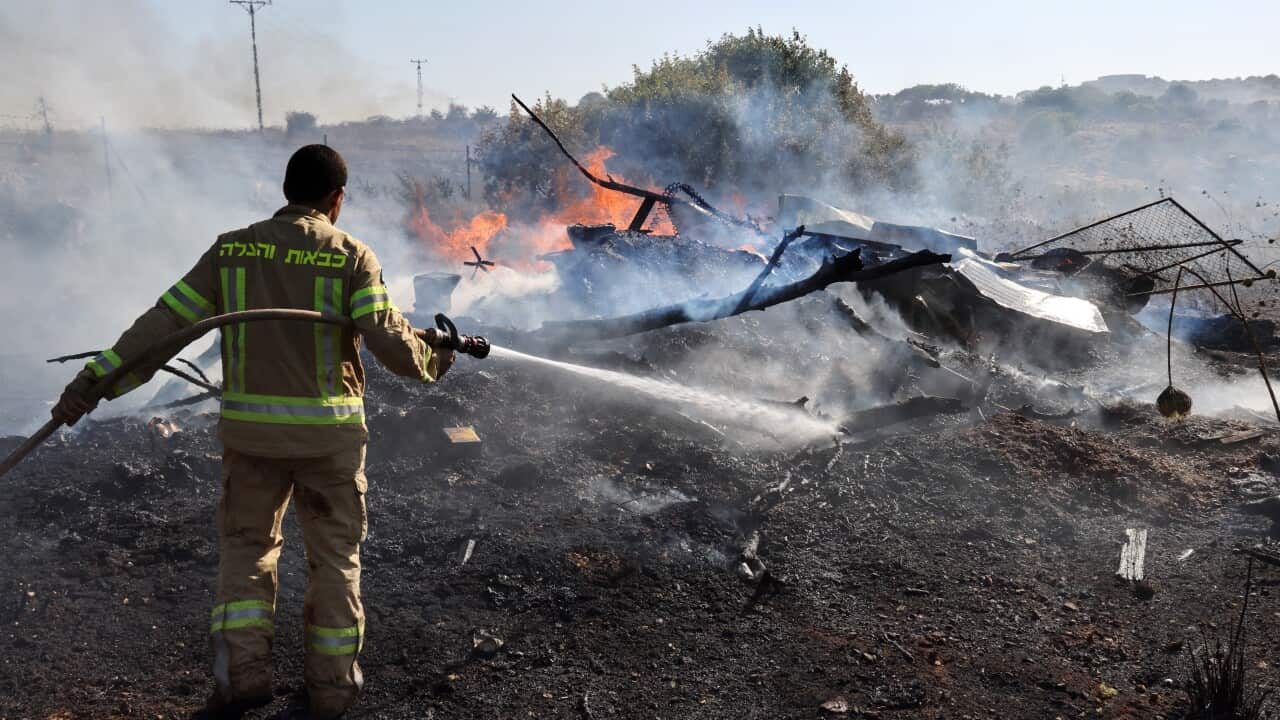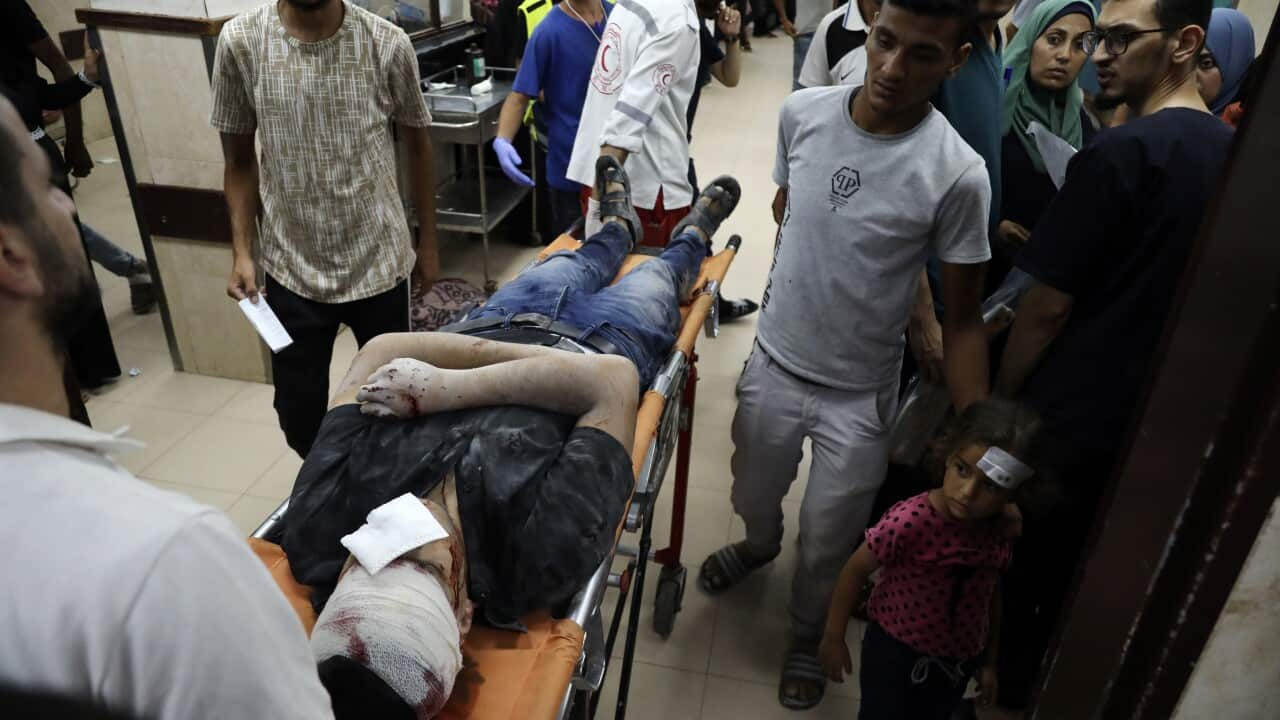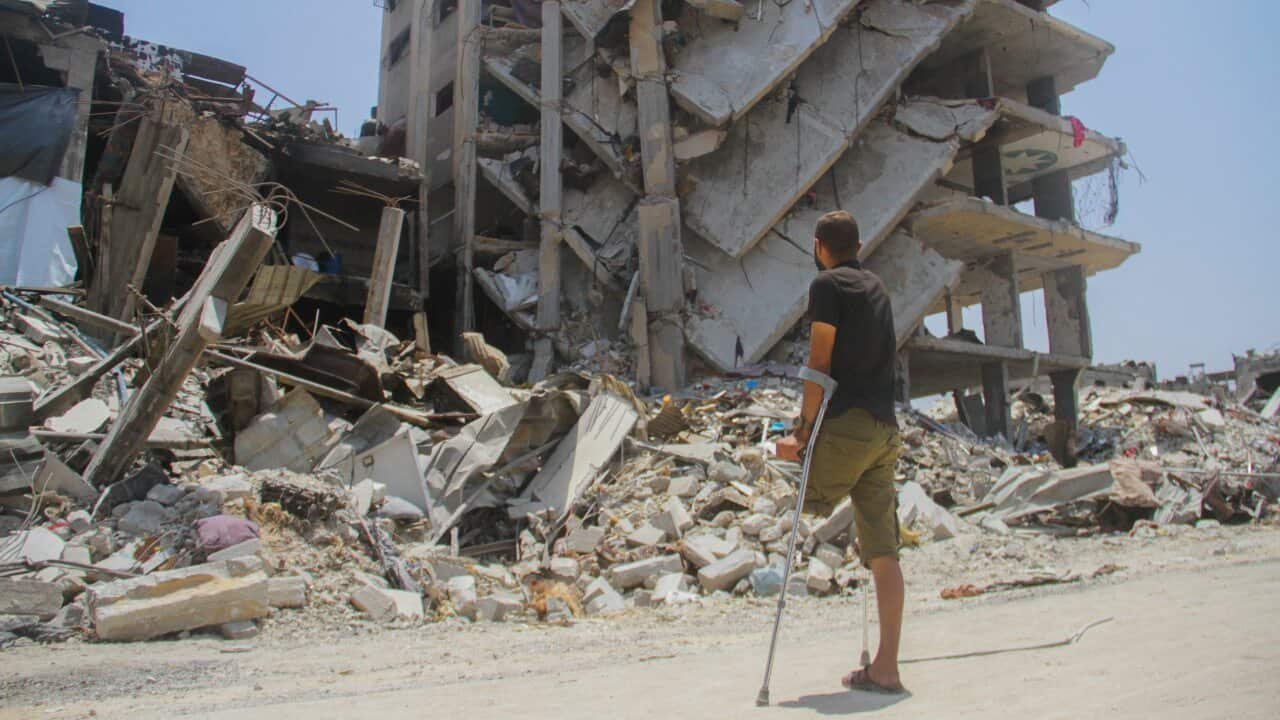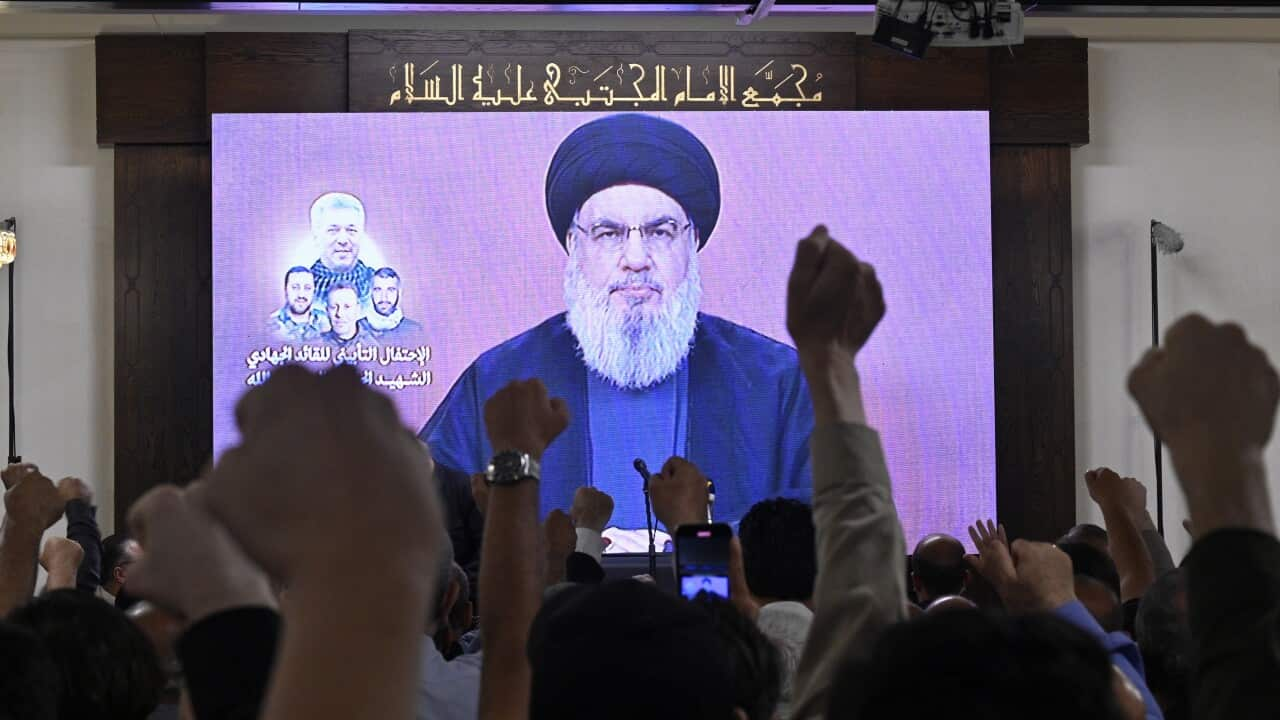Key Points
- Israel's military said that plans for an offensive in Lebanon had been "approved and validated".
- Experts are divided on the prospect of a wider war, almost nine months into the Hamas-Israel war.
- Months of negotiations towards a truce and a hostage release have failed to make headway.
The Israeli army on Saturday continued to pound Gaza after the International Committee of the Red Cross said 22 people were killed in shelling that damaged its office in the besieged Palestinian territory.
Exchanges of fire across the Lebanese border between Israel and the powerful Iran-backed militant group Hezbollah have also escalated in recent weeks,
UN Secretary-General Antonio Guterres said Friday that the cross-border hostilities must not turn Lebanon into "another Gaza", warning of the risk of triggering a catastrophe "beyond imagination".
His warning came as Israel stepped up its strikes in the Gaza Strip, where one hospital in Gaza City reported at least 30 dead on Friday and fighting continued Saturday morning.
The Israeli military meanwhile said troops continued to carry out operations in central Gaza "eliminating several armed terrorists and dismantling terrorist infrastructure in the area".
"Fighter jets and additional aircraft struck numerous terror targets in the Gaza Strip, including armed terrorists, weapons storage facilities, and additional terrorist infrastructure," it added.
In southern Gaza, the ICRC on Friday said 22 dead and 45 wounded people were taken to a Red Cross field hospital after shelling with "heavy calibre projectiles" near its Gaza office.
"Firing so dangerously close to humanitarian structures puts the lives of civilians and humanitarians at risk," the ICRC said on X.
The health ministry in Gaza blamed the shelling on Israel, saying there were 25 killed and 50 wounded in the southern coastal Al-Mawasi area, where thousands of displaced people have been sheltering in tents.
An Israeli military spokesman did not acknowledge any role in the incident but said it was "under review".
In the north of the Strip, the director of Gaza City's Al-Ahli hospital was quoted by the territory's health ministry as reporting 30 dead in strikes.
"It has been a difficult and brutal day in Gaza City. So far, around 30 martyrs have arrived at the Al-Ahli Arab Hospital," doctor Fadel Naeem was quoted as saying.
Lebanon-based Hamas ally Hezbollah meanwhile claimed several attacks on Israeli troops and positions near the border on Friday, including two using drones.
The Israeli army said it had carried out multiple retaliatory strikes on both days.
Israeli jets on Friday struck a "Hezbollah military structure in the area of Khiam, a Hezbollah military post in the area of Mais al-Jabal, and Hezbollah terrorist infrastructure in the areas of Taybeh and Tallouseh in southern Lebanon", the army said in a statement.
Experts are divided on the prospect of a wider war, almost nine months into Israel's campaign to eradicate Hamas in the Gaza Strip.
Amid the escalating exchanges between Israel and Hezbollah, Israel's military said Tuesday that plans for an offensive in Lebanon
Hezbollah chief Hassan Nasrallah said "no place" in Israel would "be spared our rockets" in a wider war, and also threatened nearby European Union member Cyprus.
Citing the "bellicose rhetoric" on both sides, UN chief Guterres warned Friday that the risk of all-out war was real.
"One rash move — one miscalculation — could trigger a catastrophe that goes far beyond the border, and frankly, beyond imagination," he said.
Israel's ally the United States has appealed for de-escalation.
The war began on 7 October, when militants led by Hamas, killed 1,200 Israelis and took more than 250 hostages, according to Israeli tallies.
As of Saturday, at least 37,551 people have been killed by Israel's military operations, according to Gaza's health ministry.
Months of negotiations towards a truce and a hostage release have failed to make headway, but mediator Qatar insisted Friday it was still working to "bridge the gap" between Israel and Hamas.
The war has destroyed much of Gaza's infrastructure and left residents short of food, fuel and other essentials.












